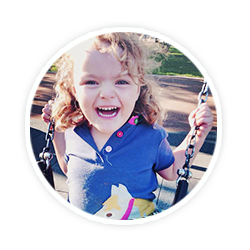Services are free!
Regardless of:
Young children are busy exploring their world and discovering new things every day. And there are many things you can do to support and nurture healthy growth and development. Below, we’ve listed some specific activities to help a 4-year-old learn and grow.
 Moving - Physical or Motor Development
Moving - Physical or Motor Development Talking - Communication and Language Development
Talking - Communication and Language Development Interacting - Social and Emotional Development
Interacting - Social and Emotional Development Thinking - Cognitive Development
Thinking - Cognitive Development
If you have concerns about a child's development and think a child might need extra help to learn and grow, don't hesitate to refer a child.
The family will be contacted by the local school district to arrange for a screening or evaluation to determine if their child is eligible for Infant and Toddler Intervention or Preschool Special Education services in Minnesota.
Services are free!
Regardless of:
